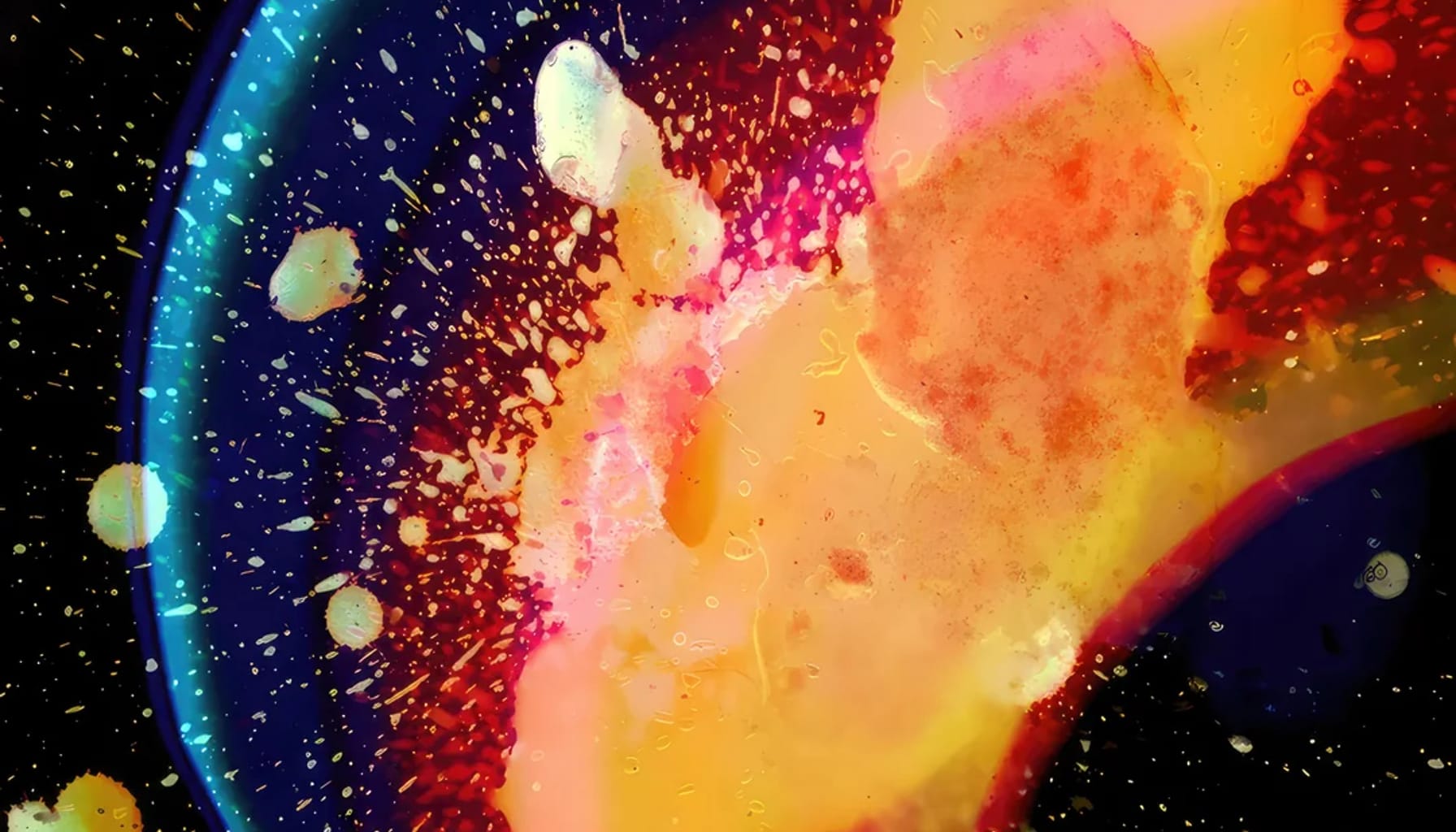Blindspotting: Radiohead, "In Rainbows"
Fixing musical blind spots, one album at a time

The Legacy: By the time they got down to work on what would become their seventh studio LP, Radiohead had long since ascended to the upper echelon of critically and commercially significant rock acts — and they'd also played out the string on their contract with EMI, which meant they entered the studio as free agents (or, as the New York Times, famously quipped, "the world's most popular unsigned band"). At this point, we were several years removed from the music industry's mp3-fueled implosion, but people were still figuring out what that meant; for the most part, well-known acts were still sticking with the tried-and-true major-label formula, leaving experiments with digital distribution to artists who had less to lose and a lot more to gain.
That changed with In Rainbows, which was sprung on fans with ten days' notice and distributed via inrainbows.com, where it was available for purchase at whatever price the listener deemed appropriate (even nothing at all). Like pretty much everything else Radiohead had done to that point — and much of what they've done since — this sparked a lot of conversation, including a fair amount of debate over whether the band members were charting a new path for all established artists or simply shoving music further down the slippery slope of devaluation that really got greased during the war between the MPAA and filesharing platforms like Napster.
What this all means, in a nutshell, is that from a commercial standpoint, In Rainbows' legacy is somewhat complicated. Although the album was also released via physical formats, and debuted at No. 1 on the Billboard chart, it's basically impossible to really understand how many people actually bought the damn thing — some reports suggest it was an immediate moneymaker for the band, while others assert that the vast majority of downloaders paid very little or nothing at all. And even with the pay-what-you-will model, people still pirated the fuck out of the record.
From a critical standpoint, the story's a lot simpler: Like everything else Radiohead had or has done, In Rainbows was hailed as a masterpiece, with publications falling over themselves to proclaim it the album of the year. No surprises there.
First Impressions: Esteemed Friend of Jefitoblog recently described Radiohead's music as "cold to the touch," and I think that does a fine job of summing up my reasons for avoiding this band so resolutely for so long. When they surfaced in the early '90s with "Creep," they sounded to me like just another goddamn sad grunge-adjacent band, and when they really got going with The Bends and OK Computer, they just sounded like math to me. (And yes, all music is math, but you get what I'm saying.)
At a certain point, the hysteria around this band reached such a high pitch that I felt like there was no such thing as casually sampling their music — which was really fine, because what little I heard struck me as ostentatiously experimental. As a younger listener, I was a devourer of liner notes, particularly lyrics, and I largely clung to songs that told stories I could relate to. I'm not anywhere near as stubborn about this (or most other things) as I used to be, but old habits die hard, so when the 16-year-old Son of Jefitoblog insisted that I listen to In Rainbows, I did so with significant misgivings.
I needn't have worried, of course — the kid's tastes are far more sophisticated than mine were at his age, but he's rarely led me astray, and this album is no exception. I will readily admit up front that despite listening to In Rainbows something like 20 times, I couldn't tell you what the hell any of these songs are actually about, but that's easily forgiven when a record's musical vibes are this eerily seductive. Thom Yorke has said the album is supposed to capture the banal dread of modern living — I think he used the specific example of sitting in traffic, feeling like you're supposed to be doing something else but you can't remember what — and I think it does that really well, whether or not you're able to wiggle any narrative threads out of its eerie sonic canvas.
All that being said, is this an album one listens to for pleasure? I don't know if I have a real answer to that question. It's unsettling by design, and extremely effective on that front, but how much of that can a person take before they start feeling clammy and flee to the sunnier environs of, say, Van Halen's 1984? In my particular case, I guess that number hovers around 15 consecutive listens, but I was also listening as a means of musical discovery while performing an important public service. Your mileage may vary, but I'm very glad I broke with personal tradition and let Radiohead into my life.
Hidden Gems: I feel like anyone who's listened to this album has probably really listened to it, so even though it only had two singles ("Jigsaw Falling Into Place" and "Nude") that were barely hits, there probably aren't any true hidden gems buried in the track listing. I'll just give you my personal favorite, which is "Weird Fishes/Arpeggi," and which I can't really offer any concrete reasons for particularly enjoying other than I'm a huge sucker for persistent, repetitive arpeggios.
